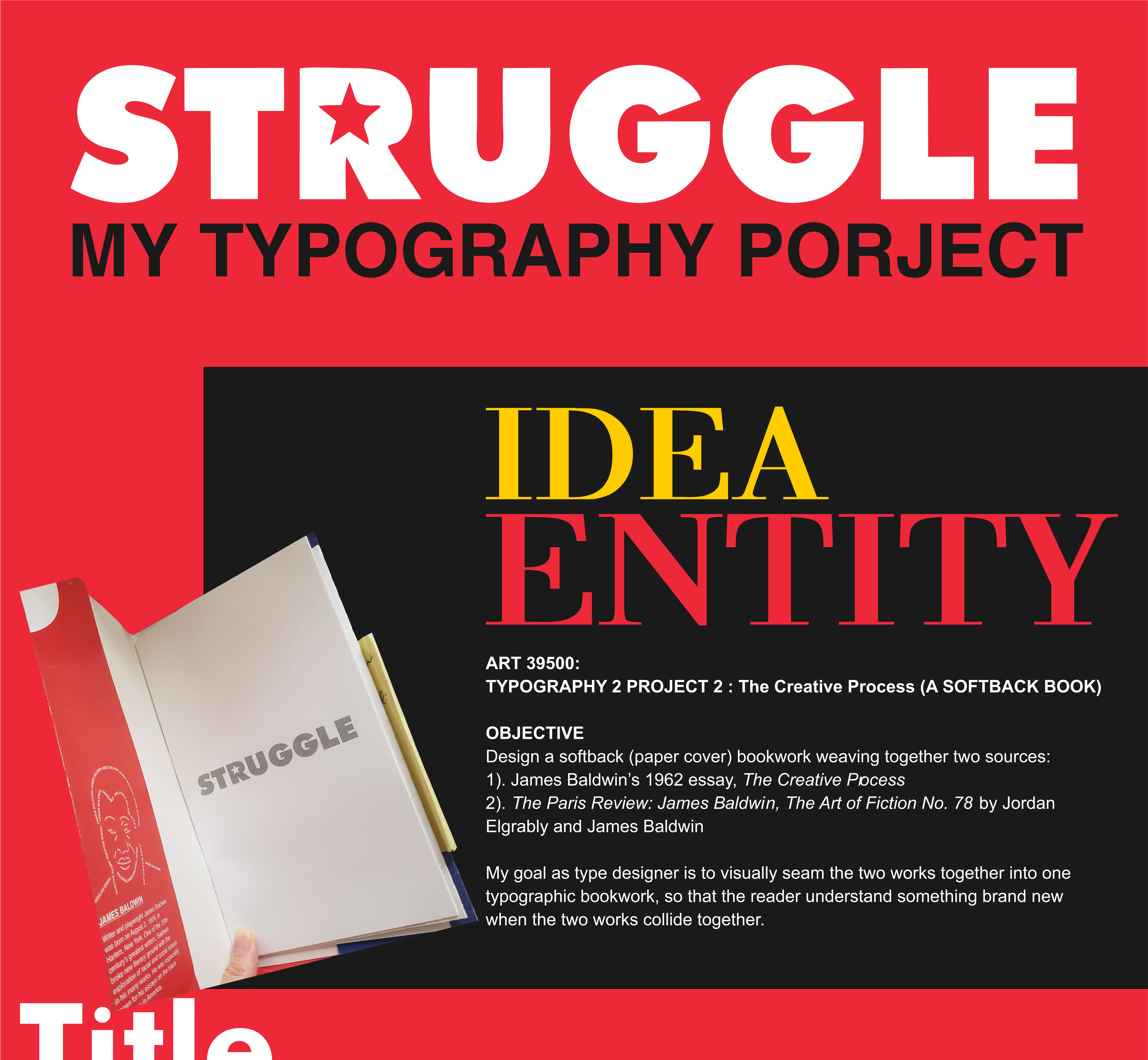Perhaps the primary distinction of the artist is that he must actively cultivate that state which most men, necessarily, must avoid; the state of being alone.
The artist is present to correct the delusions to which we fall prey in our attempts to avoid this knowledge.
But the conquest of the physical world is not man’s only duty. He is also enjoined to conquer the great wilderness of himself. The precise role of the artist, then, is to illuminate that darkness.
A society must assume that it is stable, but the artist must know, and he must let us know, that there is nothing stable under heaven. One cannot possibly build a school, teach a child, or drive a car without taking some things for granted.
The entire purpose of society is to create a bulwark against the inner and the outer chaos, in order to make life bearable and to keep the human race alive.
The artist is distinguished from all other responsible actors in society—the politicians, legislators, educators, and scientists—by the fact that he is his own test tube, his own laboratory, working according to very rigorous rules, however unstated these may be, and cannot allow any consideration to supersede his responsibility to reveal all that he can possibly discover concerning the mystery of the human being. Society must accept some things as real; but he must always know that visible reality hides a deeper one, and that all our action and achievement rest on things unseen.
I was broke. I got to Paris with forty dollars in my pocket, butI had to get out of New York. My reflexes were tormented by the plight of other people. Reading had taken me away for long periods at a time, yet I still had to deal with the streets and the authorities and the cold. I knew what it meant to be white and I knew what it meant to be a nigger, and I knew what was going to happen to me. My luck was running out. I was going to go to jail, I was going to kill somebody or be killed. My best friend had committed suicide two years earlier, jumping off the George Washington Bridge.
The dangers of being an American artist are not greater than those of being an artist anywhere else in the world, but they are very particular. These dangers are produced by our history. They rest on the fact that in order to conquer this continent, the particular aloneness of which I speak the loneliness in which one discovers that life is tragic, and therefore unutterably beautiful could not be permitted.
And that this prohibition is typical of all emergent nations will be proved, I have no doubt, in many ways during the next fifty years. This continent nowe is conquered, but our habits and our fears remain.
For an artist, the record of that journey is most clearly revealed in the personalities of the people the journey produced. Societies never know it, but the war of an artist with his society is a lover’s war, and he does, at his best, what lovers do, which is to reveal the beloved to himself and, with that revelation, to make freedom real.
In the same way that to become a social human being one modifies and suppresses and, ultimately, without great courage, lies to oneself about all one’s interior, uncharted chaos, so have we, as a nation, modified or suppressed and lied about all the darker forces in our history.
We know, in the case of the person, that whoever cannot tell himself the truth about his past is trapped in it, is immobilized in the prison of his undiscovered self. This is also true of nations. We know how a person, in such a paralysis, is unable to assess either his weaknesses or his strengths, and how frequently indeed he mistakes the one for the other. And this, I think, we do. We are the strongest nation in the Western world, but this is not for the reasons that we think. It is because we have an opportunity that no other nation has in moving beyond the Old World concepts of race and class and caste, to create, finally, what we must have had in mind when we first began speaking of the New World. But the price of this is a long look backward when we came and an unflinching assessment of the record.
The human beings whom we respect the most, after all — and sometimes fear the most are those who are most deeply involved in this delicate and strenuous effort, for they have the unshakable authority that comes only from having looked on and endured and survived the worst. That nation is healthiest which has the least necessity to distrust or ostracize these people — whom, as I say, honor, once they are gone, because somewhere in our hearts we know that we cannot live without them. You say here that when you went to live in the mountains of Switzerland you arrived armed with two Bessie Smith records and a typewriter: “I began to try to recreate the life I had first known as a child and from which I had spent so many years in flight,” you wrote. “It was Bessie Smith, through her tone and her cadence, who helped me to dig back to the way I myself must have spoken when I was a pickaninny, and to remember the things I had heard and seen and felt. I had buried them very deep.” Now, here’s the part, Jim: “I had never listened to Bessie Smith in America (in the same way that, for years, I never touched watermelon), but in Europe, she helped me to reconcile myself to being a “nigger.’ ”
Now, anyone who has ever been compelled to think about itanyone, for example, who has ever been in love knows that the one face that one can never see is one’s own face. One’s lover or one’s brother, or one’s enemy sees the face you wear, and this face can elicit the most extraordinary reactions.
When I arrived in Paris in 1948 I didn’t know a word of French. I didn’t know anyone and I didn’t want to know anyone. Later, when I’d encountered other Americans, I began to avoid them because they had more money than I did and I didn’t want to feel like a freeloader.
I remember standing on a street corner with the black painter Beauford Delaney down in the Village, waiting for the light to change, and he pointed down and said, “Look.” I looked and all I saw was water. And he said, “Look again,” which I did, and I saw oil on the water and the city reflected in the puddle. It was a great revelation to me. I can’t explain it. He taught me how to see, and how to trust what I saw. Painters have often taught writers how to see. And once you’ve had that experience, you see differently
Our second talks were held at Baldwin’s poutres and stone villa in St. Paul deVence, where he has made his home for the past ten years. We lunched on an August weekend, together with seasonal guests and his secretary. Saturday, a storm raged amid intolerable heat and humidity, causing Baldwin’s minor case of arthritis to pain his writing hand (left) and wrist. Erratic power shortages caused by the storm interrupted the tape machine by our side. During the blackouts we would discuss subjects at random or wait in silence while sipping our drinks.
Ralph Ellison said in his Paris Review interview that he writes ‘primarily not concerned with injustice, but with art,’ whereas one might almost find you a sort of spokesman for blacks.
You say the city beat him to death. You mean that metaphorically. Not so metaphorically. Looking for a place to live. Looking for a job. You begin to doubt your judgment, you begin to doubt everything. You become imprecise. And that’s when you’re beginning to go under. You’ve been beaten, and it’s been deliberate. The whole society has decided to make you nothing. And they don’t even know they’re doing it.
I’m not so sure! I’m not sure I’ve escaped anything. One still lives with it, in many ways. It’s happening all around us, every day. It’s not happening to me in the same way, because I’m James Baldwin; I’m not riding the subways and I’m not looking for a place to live. But it’s still happening. So salvation is a difficult word to use in such a context. I’ve been compelled in some ways by describing my circumstances to learn to live with them. It’s not the same thing as as accepting them.
The death of my father. Until my father died I thought I could do something else. I had wanted to be a musician, thought of being a painter, thought of being an actor. This was all before I was nineteen. Given the conditions in this country to be a black writer was impossible.
Entirely. The two roles are completely unattached. When you are standing in the pulpit, you must sound as though you know what you’re talking about. When you’re writing, you’re trying to find out something which you don’t know. The whole language of writing for me is finding out what you don’t want to know, what you don’t want to find out. But something forces you to anyway
When I was young, people thought you were not so much wicked as sick, they gave up on you. My father didn’t think it was possible—he thought I’d get killed, get murdered. He said I was contesting the white man’s definitions, which was quite right. But I had also learned from my father what he thought of the white man’s definitions. He was a pious, very religious and in some ways a very beautiful man, and in some ways a terrible man. He died when his last child was born and I realized I had to make a jump a leap. I’d been a preacher for three years, from age fourteen to seventeen. Those were three years which probably turned me to writing.
When I say I was trying to dig back to the way I myself must have spoken when I was little, I realized that I had acquired so many affectations, had told myself so many lies, that I really had buried myself beneath a whole fantastic image of myself which wasn’t mine, but white people’s image of me. I realized that I had not always talked — obviously I hadn’t always talked — the way I had forced myself to learn how to talk. I had to find out what I had been like in the beginning, in order, just technically as a writer, to recreate Negro speech. I realized it was a cadence; it was not a question of dropping s’s or n’s or g’s, but a question of the beat.

